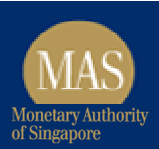Compliance
Singapore's Regulator Sets Out Why Crackdown On Dirty Money Was Needed

In a speech this week the head of the MAS has spelled out why his organisation took the action it deed to expel banks and punish individuals over the Malaysia-linked illicit money scandal.
The head of Singapore’s central bank and financial regulator has
reiterated why the watchdog has taken tough action to erase dirty
money, a process that has seen the likes of BSI[/BSI] and Falcon Private
Bank kicked out of the jurisdiction.
Ravi Menon, managing director of the Monetary
Authority of Singapore, set out why his organisation went
after firms implicated in a scandal linked to transactions in and
around 1MDB, the Malaysian state-run fund.
“Last year, I said that the findings on the 1MDB-related
transactions that flowed through here had made a dent in our
reputation as a clean and trusted financial centre. I believe we
have begun the process of restoring that reputation. We
have taken tough and unprecedented enforcement actions and sent
an unequivocal message that MAS will not tolerate the criminal
abuse of Singapore’s financial system,” Menon said in a speech as
he delivered a review of the economic, financial and regulatory
scene.
In May, the MAS completed what Menon called “an intensive
two-year long review of banks connected to 1MDB-related
transactions known to-date”. The actions have seen MAS shut two
banks and fine eight lenders a total of almost S$30 million, the
largest aggregate financial penalties to date in Singapore, he
said. Prohibition orders have also been filed against four
individuals and the MAS has also served notice of other bans on
persons for various rule breaches. (To see a recent story about
the 1MDB episode, click here.)
“Thanks to excellent co-operation we have had with overseas
jurisdictions, Singapore authorities were able to obtain good
intelligence and piece together most of the significant flows
from end to end. We have found nothing new in the latest filing
by the US Department of Justice that warrants further action by
us. But if any new relevant information or leads arise from
ongoing investigations in Singapore or elsewhere, rest assured
MAS will re-open the files and pursue the matter,” Menon
continued.
Meanwhile, Menon referred to the macro-economic position, noting
that in Singapore, gross domestic product is expected to rise by
between 1 and 3 per cent in 2017; there is a “strong likelihood”
it will exceed the 2 per cent result of 2016, he said.
“Growth has been somewhat uneven across sectors but this is to be
expected in the initial stages of an external-led pickup. Growth
is expected to gradually broaden to the rest of the economy over
the course of the year,” he said.
Cool it
The regulator warned that although measures to cool Singapore’s
red-hot real estate market had borne fruit, this was not the time
to lift curbs. Private residential property prices have declined
by nearly 12 per cent over the last 14 quarters, Menon said,
following a rise of close to 60 per cent over 17 quarters.
Underlying demand remains strong amid low interest rates; recent
launches of property projects have drawn strong demand while
transactions in the first three months of this year surged by
almost 40 per cent compared to average quarterly transactions
since cooling measures started in 2013.
“The risk of a renewed unsustainable surge in property prices is
not trivial.. investors continue to search for yield and safety
in property markets across the world,” he said.
Innovation
Menon also set out how MAS is trying to bolster the
jurisdiction’s venture capital and private equity sector. VC/PE
assets under management has grown at a compound annual growth
rate of 28 per cent over the past five years.
“But we need to do more - given the growing numbers of Asian
growth companies and their tendency to stay private for longer
and not go the IPO [initial public offering] route,” he said.
MAS is making regulations simpler for VC managers, he
continued.
The organisation is also, he said, looking to “strengthen
Singapore’s value proposition for Asian companies to issue
bonds”. The MAS has introduced the Asian Bond Grant scheme, under
which MAS will co-fund up to S$400,000 of issuance-related
expenses for first-time Asian issuers.